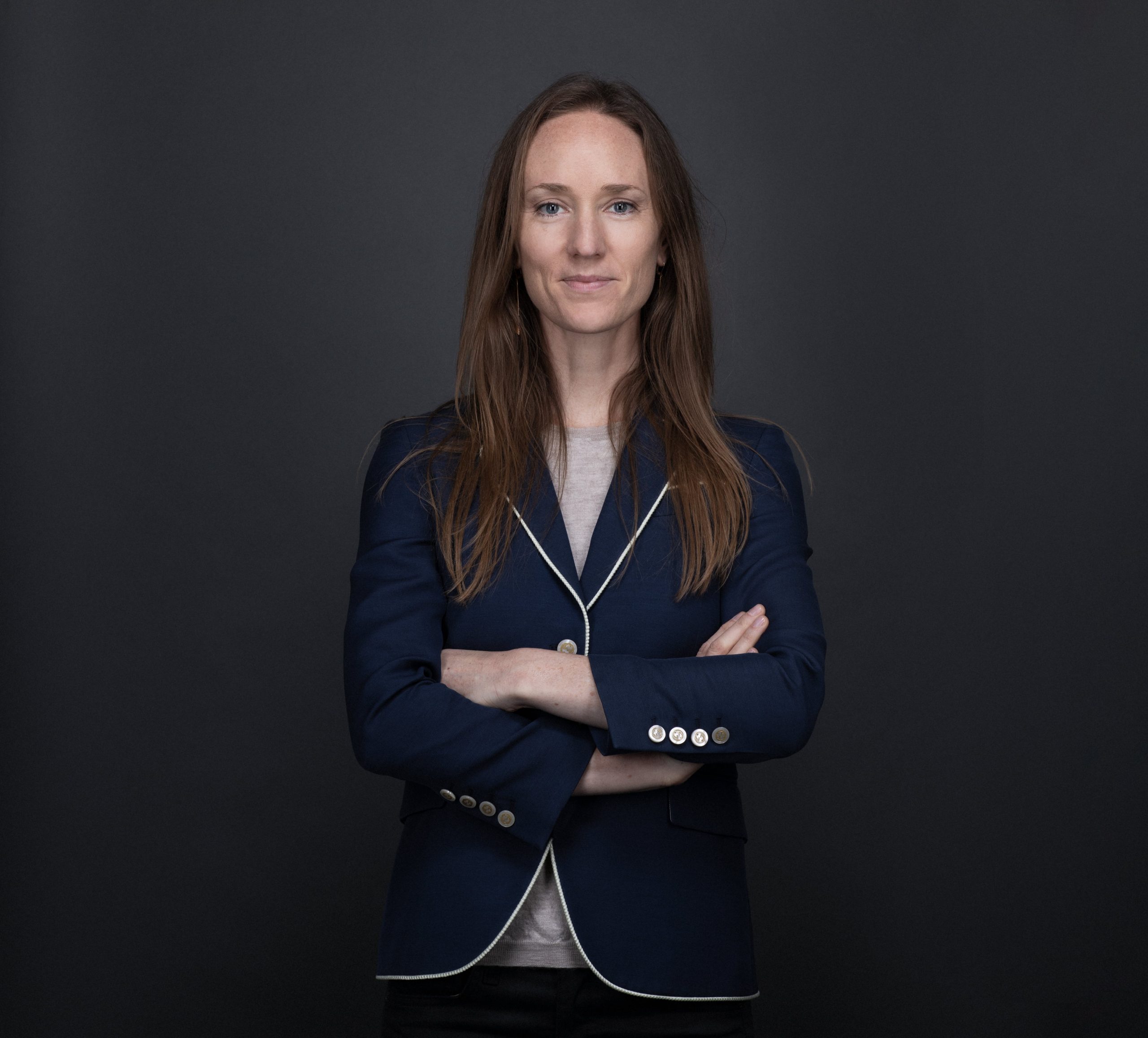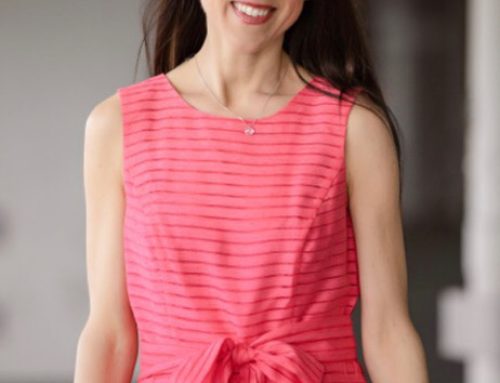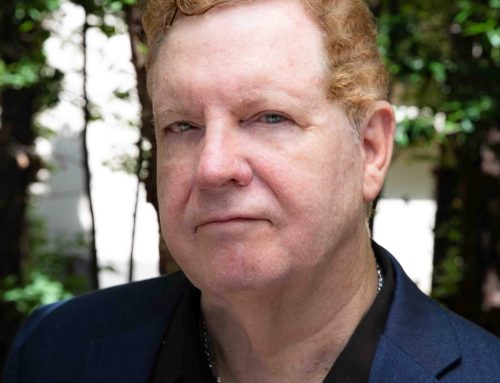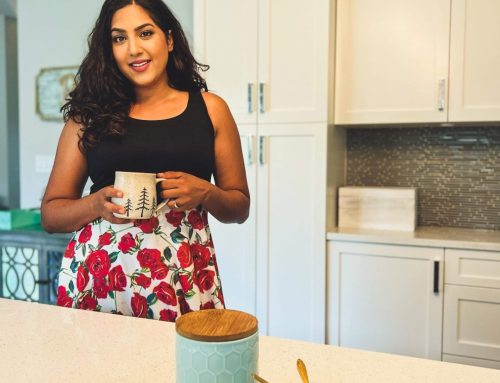Ashley: Today I’m talking with Veronica Weedon. She is the owner of Revival Health. She works as a health coach, helping people heal after toxic relationships. Thank you so much for joining me today.
Veronica: Thanks for having me. I’m happy to be here.
A: Can you tell us a bit about your background prior to becoming a health coach?
V: Sure. So I actually worked in the corporate world for most of my career going from nonprofits to big corporations, to midsize organizations, mostly in sales and marketing. But then through my own life and personal experiences made a shift several years back and took some time out to re-shift and refocus everything to heal myself and went to study integrative health coaching. And have since created this business as you so eloquently mentioned to help people heal after narcissistic relationships, because that is in fact what my story is and what I healed from amongst many other things so today I help people do the same.
RECOGNIZING YOU ARE IN A TOXIC RELATIONSHIP
A: I think there’s so many people that maybe don’t necessarily realize that they’re in a toxic relationship or have experienced that even as with parents or experience with a teacher or coach or something like that so I think the more resources people have to seek help is just really, really fantastic.
V: I was one of those people who I didn’t know that I was in it. I’d never heard of toxic behaviors before or narcissism or anything to that effect so I was certainly one of those people and education was a big part of my journey. It was the first step, because it is a critical step to understand, and to be able to recognize the signs.
A: I was born in the 80’s, grew up in the 90’s and I just feel like almost the toxic relationship was the model of this is what you go for, whether it’s like a romcom, whether it was like a Disney movie so I think that our generation is sort of given the tools incorrectly to set up what is a relationship that we should look for. It sort of bred narcissism because I know that it seems so much more prevalent or there is so much more education about it now. Do you think that those sort of roles ended up sort of modeling this behavior for us? And that’s why it’s so common? Or do you think it’s more common now just because we do have the education piece?
V: Honestly, I think it’s both. So I think, like you said, fortunately people are becoming slowly but surely becoming more aware of it. And again, fortunately I think the younger generations are becoming wiser and smarter and there are a lot of movements sort of happened just in the past year, as the me too, et cetera, where women especially but men too are standing up for themselves and learning about setting boundaries which is so important, and as you say, our generation was very much more old school in quotation marks where children were meant to be seen not heard, and you were there to play a role. Again coming from what you said, it’s not just in romantic relationships, but it can be in the workplace, it’s with your parents and as a child, there’s nothing you can do about it, right? Because you’re dependent on your parents and you learn what you live and so that’s the model that you have and then you think that’s normal and yes the Disney’s from our generation were very different from what they are today. Thank goodness they’ve changed because yeah, I think that absolutely bred a very unhealthy notion of what a healthy relationship might look like. It was always the damsel in distress, waiting for Prince Charming to come along and solve all her problems. That’s actually not at all what it should be or what healthy looks like. Is it?
THE ABUSE CYCLE
A: No, not at all. For both parties for both men and women, it really just set us up on this really negative playing field. Do you mind talking about a little bit of your experience personally with toxic relationships and your experience with narcissism?
V: Sure. So what was sort of the tipping point for me that led me to go through this massive shift and change pretty much everything in my life was a six year relationship. So I was caught in the abuse cycle for six years. For any listeners who don’t know what the toxic abuse cycle looks like, it starts with love bombing, where they just shower you with attention and essentially become or portray themselves to be everything that you’ve ever dreamed of. They get to know you so well and you think, wow this person’s amazing because they’re listening and they’re hearing me and they’re responding to that, but they do that in order to gain this insight into you in order to become whoever or whatever your picture perfect looks like, and that’s how they get you hooked into the cycle. The love bombing phase which can last a long time, by the way, even up to a year in the initial round then moves into the de-valuing stage. Then it goes into discarding and then moves into hoovering and then it starts again, the love bombing and that cycle just goes round and round around. I was stuck in it for six years with someone so a romantic relationship. We were engaged. It was just exhausting to be honest. I didn’t understand it, like we talked about before I had no awareness of the subject or what was really happening. I believed that he was the person that he portrayed himself to be when we first met. So in this first love bombing stage and everything I did for the next six years was trying to get back to that stage. The drama was just never ending. It was exhausting and crazy stories. You know, he was always sick, he was always dying, he was always the hero, he was always the victim, but things were never just normal or quiet or calm. He went on about wanting children and I wanted that too, but that was just another tactic. He knew I was getting older and therefore if that was going to happen for me, we needed to do something about it, but it was just another manipulation tactic to leave me as wounded as possible. At the end we were engaged to be married. He told me he wasn’t coming the night before our wedding. It was the Hollywood film, the bride dumped at the alter practically. I still stayed with him for a year after that, which from looking at it now is just insane. It just shows how tied into this abuse cycle. I was just so physically ill. I mean, I suffered a seizure. I ended up with back surgery. I had brain fog that I couldn’t focus anymore. I couldn’t think I was dangerous to drive. I almost got in three different car accidents because I really shouldn’t have been driving. My brain fog was so bad I fell asleep at a meeting in work, which was humiliating. I’m such an attentive and disciplined and methodical person. In my work, it was just mortifying and this is just a handful of what was happening in my life. It sounds very tragic, but a lot of people go through this and feel it as though the thought of dying felt like a relief. I mean, I was at the point where I wanted to die because everything was just so hard and my body was breaking down. That was the trigger point and then as I started my healing journey. I looked back and realized how many of the previous relationships had also been toxic and how that toxicity really started in my childhood and my upbringing on many different levels.
A: It really does always lead back to childhood and the things that we create to think that they mean something else and those sorts of cutoffs of trauma moments. I’m really sorry that you had to go through that relationship, but it’s so unfortunate how common it is and when you’re in that abuse cycle and when you’re with an abusive partner you know, funny in a not funny way that you literally can’t see it.
DATING AN ENERGY VAMPIRE
V: No, you can’t. And the other thing that makes it so difficult is because these toxic people, the narcissists, they need narcissistic supply. If you’ve never heard of that term essentially it’s energy. So think energy vampires, no matter what situation they’re in, they need this from every source everywhere all the time, they cannot be alone. They are for the most part, very popular people because they’re charming and they’re usually funny and often very intelligent or generous or have external qualities that people perceive as, oh my goodness, this person is so nice. And because again, they’re always getting to know everyone and being the center of attention and people are drawn to that. They have this inherent ability to draw people into their vortex, for lack of a better word. That’s what makes it hard is because everyone around you loves them. So when you say, hey you know things are happening and it’s really not great, people don’t believe you because all they see is this charismatic charming person on the outside. And think, oh, you’re crazy. So you’re not only made to feel crazy through all the gaslighting that’s done within the relationship towards you, but it’s from external sources as well. You’re not believed and that makes everything so much harder.
A: Yeah, cause you don’t have the support system to leave.
V: Exactly. I was just going to say the struggle is also internal because the whole thing is so confusing. You’re always trying to get back to that person that you believed existed at the beginning. Right? Your love is real right. There is isn’t but yours is and your emotions are real. So part of you isn’t well I must be the crazy one and you genuinely feel like you are losing your mind and the longer you stay in the relationship, the worst that gets, and by the end of it, just getting out of bed seems like the biggest task in the world because you’re so out of it and so drained and so depleted. You do you think you’re crazy. It’s these external factors where you don’t really have the support but internally in yourself as well, you think, well it can’t be real, like I’m wrong or I need, and again, that goes back to childhood, right?! Children meant to be seen, not heard and everything’s your fault. The adults is always right. I mean, we could talk about that for hours, but that’s sort of the internal struggle, you’re not happy, you’re miserable, you’re sick and you don’t really understand why. Yet you never actually put the pieces together because unless, and this is what I hope to do with my work, actually educate people on the topic and then you can say, oh wait, these are, these are tactics. They’re real. They exist. And this is what’s happening and then you might be able to start recognizing some of those signs.
LEAVING A TOXIC RELATIONSHIP
A: It’s like you said, when you’re in it, you cannot see it. You do tend to trust your partner, you with your love is real and what they’re telling you must be how they perceive you. So that must be the truth. It does create that tornado in your brain of not knowing what’s what. How did you end up actually leaving this?
V: So for me, the real turning point of what allowed me to really walk away and when I say walk away, I mean cut the line. No contact blocked him from everything everywhere. We were together six years, we lived together, we shared everything. So there was that period where I actually had to play the role. That was interesting because once you do understand how they function and what’s really going on, they’re actually very easy to manipulate and very predictable. The turning point in my brain, if you will, was when I found out for a fact that he had been cheating, now of course, he’d been cheating all along for the six years. I later found out that I was in fact, the other woman at the beginning, which I had no idea about. They always have multiple people going on, multiple girlfriends in different cities, all different kinds of relationships. But when I found this out for a fact, and I took the very awkward, but I think very necessary step of phoning a few of these women, or at least the ones I knew about and having that conversation with them and, ironically they were as oblivious as I was. So from the past and the next one that he was moving on to, I mean, I saved her. She thanked me, both of them actually, as awkward as a conversation was at the beginning. Ultimately these women profusely thanked me because I saved them years and years I mean the previous one had been lingering for six years. The next one was so far in and she had no idea how far and she already was. So knowing factually that he had cheated on me was the line for me.
A: I think it’s really great to have those tough conversations. Like nobody wants to be like I think I’m with your partner. Or I think you’re with my partner. I think it’s really fantastic when people are open to it, because when you’re reaching out, it’s not necessarily to be like, gotcha. It really is to be like I’m in this situation, you may not want to be in this situation too. Too many people and age may be a factor in it will get defensive about it instead of being open to hearing it.
THIS ABUSE IS NOT YOUR FAULT
V: And also this, unfortunately, the factor of competition it’s because of course toxic people, they tell all kinds of lies about you. And that was part of the process, right? It was actually more an exchange of information saying okay this is what I’ve been told. What’s the actual story. And that went both ways and, the other woman was saying well I’ve been told all of this. And of course, you know, so much of it was not true or there was 1% of truth and 99% lies. So twisted and morphed. And because again, every story they tell us to make them look like the hero or the victim and people any empath will be drawn to that and in quotation “mark fall for it.” Once I knew what was really going on, that that was the flip in my brain, in terms of walking away from him, then there was that period of logistics where we had to give notice and move out. But the healing was a much longer one because he was really just the last piece, the tipping tipping point for me, but the cycle and the toxicity in my life, like we mentioned before, had gone back to childhood and unpicking that, over the course of, many years that took time healing my body physically. Healing mentally and healing emotionally and understanding it and going back and finding the root cause and quite frankly, taking responsibility for my own life and figuring out, okay, why did I end up here? There are two really important things that I would love the audience to know for anyone who can relate to any of this. The first one is what happened is not, or what’s happening is not your fault. It is not your fault. That is so critical to understand because the guilt and the shame that goes along with it you’re miserable, you’re unhappy or sick. You don’t really understand it but you’ve invested so much time into it and you might be at a certain age where it’s critical and you’re like, oh what do I do? You could be dependent on them financially. I mean, there’s so many reasons why you wouldn’t leave or choose not to leave and the guilt and the shame internally that that’s with that, whether conscious or not. It’s tough. And that’s why knowing that it’s not your fault is really key. The second piece is then in order to change your life, you do have to take responsibility. And that’s a scary word for many, but actually if you pull it apart, responsibility means the ability to respond. I found that when you phrase it that way, it actually becomes quite empowering.
A: You can almost feel the shift when you hear it that way.
V: Yeah. Because who doesn’t want to be able to respond in good ways. It becomes quite empowering.
A: Yeah. It does. It takes the control of the situation back.
V: Exactly.
A: When you’re in it, you don’t see it. You don’t necessarily recognize the love bombing because at the same time, we always think of the beginning stages like this newlywed stage where everything is that butterflies and everybody does want to make it last as long as possible. They’re so skilled at being so manipulative that it’s like you just don’t even see it until almost you hit that sort of rock bottom, whatever that looks like for your relationship and it’s like that perspective just isn’t there when you’re in it.
V: Yeah. Or whatever that line is for you. And again, for me the line was cheating. Of course he’d been cheating the whole time. Looking back all the signs are there. When you do understand it and you look back, you can always see that the signs were there, but if you’re unaware and you don’t see it, but whatever your line is, and that’s going to be different for everyone, you know? You’ve got to cross it in order for that switched to flip in the brain and just go I’m out no matter what.
TRUST YOU INTUITION
A: What are some of the signs that people could look for to know whether they were in a relationship like this?
V: So for one that the cycle, right? The love bombing, did that happen early on and it’s a cycle so the stage will repeat, but the longer you stay in the relationship, the shorter those phases of the cycle get but if you look back to the beginning of the relationship, or if you’re seeing someone new, pay attention to this is love bombing happening. Are they showering you with attention and affection and messaging you 20 times a day or wanting to see you? Four times a week or oversharing information, personal information to get you to trust them, are they asking really personal things about you? Again, that can easily be interpreted as, oh my goodness this person is so into me and is so interested and really wants to get to know me and understand me and all of those things are important in good time. You’ve got to build a level of trust with someone before you start sharing. What so many people, unfortunately, women in particular do is they project this fantasy that they have. They have one date with someone and all of a sudden they’re like, oh he’s marriage material and this and that. That’s not what’s happened. So I would just say, be really mindful of staying in the present moment in reality, and just take one day or one date or one interaction at a time and try not to project 10 years into the future of what you think this, because then what happens is you try and fit this person into your imagined perfect future instead of judging them on their actions right now. When things are too much it’s not normal. Your gut will tell you that. So I’d say two things, like try to be really mindful to just stay in the moment and judge them based on their actions, not on their words and secondly to always listen to your gut instinct you will always have that little moments where you sort of go. Or in inside, and you may not understand it, but that doesn’t matter. Just listen to it because your body knows best and your body is trying to tell you something and so pay attention to that.
A: We really need to trust our intuition more and feel more confident in trusting ourselves, because I feel like so many times we’ll get those tinges or we’ll get that voice in our heads telling us something and we’ll argue against it or we will maybe do the opposite.
V: Justify it. Make excuses.
A: Which it is so hard. I don’t know why there isn’t more of a push to trust that intuition because the more times than not we won’t lead ourselves down a bad path if we actually trust our initial thoughts about it. I think children are the most fantastic about that. I don’t want to talk to that person. I don’t want to sit on that Santa’s lap or whatever the case may be. But somehow from childhood to becoming an adult we sort of lose that or we lose our faith in ourselves that way.
V: Because we’re conditioned, you know, we’re told don’t be rude. Oh, go on everyone else is doing it. Just smile or eat the food that’s on your plate. They’re starving children everywhere. There’s so many examples, but we’re conditioned to not listen to our instinct. So it’s not surprising that, that we don’t. Our logic will always try to make excuses or justify it. If it’s not the outcome that we would desire. So come back to dating if your gut is telling you, oh I don’t really know what, but something just feels off, but you want this perfect future and he say, oh, the person’s good looking. They have this and this and this and so many other qualities you’ll ignore the instinct because you’re trying to make them fit into a picture. That’s the first misstep because once you start down that path and like we’ve been talking about, it’s just so hard to, to get out of it afterwards.
A: Dating is so hard and so awkward, especially each year that you get older. I think that the important thing for people to understand is there’s like 7 billion people on the planet. If you’re getting this tinge for this person, and it’s telling you, this is not a good situation, please trust that there is more fish in the sea as cliche as that is. There are better partners out there.
V: Yes, exactly. I think equally as important is just constantly working on the relationship you have with yourself, because the better that is the more prepared you’ll be to face other people. When you have a really strong relationship with yourself, the other relationships will start to fall into place because they’ll start to align with your values and you’ll be able to set boundaries and you’ll know what you want and what you don’t want. When you value yourself and you value your time, you’re far less likely to waste it on people who don’t give you what you need or what you’re looking for.
ON THE PATH TO HEALING
A: One is again, it’s so cliche, but it’s like you can’t love somebody else until you love yourself. What tools or things would you recommend for somebody now when they’re on the path to healing?
V: So the important thing is that they are out of the situation because I do believe you can’t heal in the same environment that made you sick. Everyone’s situation is different but if at all possible go no contact. So really block them from everything. Of course, if you have children together, if you’re married and you have to go through the divorce proceedings, it becomes a much more complicated situation. But even then there’s a lot of talk about that there’s no such thing as co-parenting with a narcissist, right? You can parallel parent, but you can’t co-parent. In those cases I would really recommend using a third party, whether that’s your counselor or lawyer, or however you are going about that situation.
A: They have a lot of really great apps now where you don’t actually have to talk to the other parent or the other person and you really just like schedule things in so it does remove that ability to send mean text messages and it keeps everything recorded in one place. So technology is sort of catching up with this type of situation to make it easier for the parties.
V: Which is amazing because that’s the other thing, documenting everything is really important because of course they will use anything and everything they can against you. For these people, it’s so sad but children are just another pawn, they’ll use them to manipulate you. It’s tragic because the effect that that has on children can be devastating as well. But going back to the question, no contact, if at all possible. And then it’s really about taking time for yourself because healing has to occur what I believe on three levels, it’s the emotional level, the mental level and the physical level. The longer you’ve been in a relationship like that your body is shot because you spent so much time in fight or flight mode. Our bodies were designed for good reason, right back in the day when we had to hunt for our food and if a lion was coming out the bush, you wanted your body to go into overdrive and produce all that cortisol and adrenaline to get away but what happens with the narcissist is because you never really feel safe and there’s all the drama and up and down you’re permanently stuck in this fight or flight mode. That sends your body out of whack completely so that you can’t go back into the parasympathetic nervous system, which is what you want to do to relax and calm down. So I would say one of the first things to do is detox your body and your home. That’s through nutrition because also often what happens when you’re in unhealthy relationships what you put in your body can just go out the window because you have no energy left to cook a good meal or to even know what’s good for you or not. Often again, financial hardship can lead you towards junk food and none of these things give you energy. They take energy from you. So in my program, I walk people through an elimination diet which is really about taking out a lot of the food groups. It’s tough for about a month or three weeks, but then you start reintroducing them one food group at a time so that you learn what works for your body. I believe everybody’s different and there’s no one size fits all and so this is how you can understand your body better. This is about getting back in touch with your own body and your gut feeling, your gut instinct. So that’s step one. I would also detox your home and even products you put on your skin. Just to physically really clear out all the bad stuff and negativity. From an emotional and mental perspective, one of the first things that I do with clients is have them really sit down and look at their values. People think I know what my values are. Lots of people think they do, but if they really truly, honestly look at their life, those values are very rarely reflected because when we do live in alignment with our values, we’re generally happy and satisfied for sure. When we’re not, we’re out of alignment. So going back and really sitting down and say what’s important to me and those are the starting points that I would recommend for people.

REVIVAL HEALTH PROGRAM
A: Is you program good for anybody leaving toxic relationships regardless of who the toxic relationship was with, whether it was a parent, whether it was romantic, et cetera, or does it sort of target certain traumas?
V: It can apply to anyone. So depending on your age, in our age group, generally, as we get older in most cases, people distance themselves from their parents because we don’t live at home anymore. So that’s why just by default, mostly it’s focused on romantic relationships because that’s the person we live with and spend the most time. But if you are in close proximity with a parent or at work with your boss and you can’t get out of that, then absolutely it’s it’s for anyone really who feels that they’ve been stuck in this toxic cycle, wherever that has taken place to heal from that.
A: Is your group online or in person or both?
V: It’s online because of the way the world works works today. It’s a mixture between individual coaching sessions with me and then group calls every week with homework in between to do on an emotional, mental and physical level in various stages. I actually think the group elements is really key. The program is designed based on the years and years that I’ve spent healing myself. I’ve kind of taken all the elements that worked most effectively and efficiently for me and put them into this eight week program. One thing that I never had was a support network because it’s such a lonely journey when you don’t understand what’s going on, you think you’re the only person in the world that’s going through it. I didn’t have any friends who went through it or, and again, remember your friends often don’t understand and they didn’t. It’s a really difficult thing to explain to people as well. Only people who have been through it can truly understand how messed up it is and what you might be going through so having that group elements where people are going through it at the same time and can mutually support each other is something I wish I had, which is why I’ve now introduced the group program for exactly that reason.
A: It makes a game changer when you know that there are people that believe you and also went through the same situation. It does make you feel way more confident in that I wasn’t crazy. It isn’t just me. It doesn’t have to say something about me. I know a lot of the times narcissists will of create this cycle of like making you feel worthless or making you feel stupid and making you feel crazy and making you not be able to trust yourself or know which way is up. So once you are out of it and you can say I’m not dumb. Wasn’t just me. It really is life-changing.
NARCISSISTS PICK VICTIMS CAREFULLY
V: No, you’re not dumb at all, nor are you crazy. In fact often the narcissists, they pick their victims so carefully and they’re often really successful people high achievers as well, because remember everything’s about image and attention, right? And so if you are doing well in life and your confident, beautiful and successful, that’s all very appealing to them. So they don’t pick people who are completely lost in life and just don’t know where they’re going or what they’re doing. They target very carefully, very specifically.
A: I think one of the myths about that type of personality is that they’re so good at showing that they’re confident, but they are really one of the most insecure type of people that there really is. Even from their end, this emotional battle of, I want to be this person so I’m going to portray this person and I’m going to make everybody around me think that I’m this person while also having like just crippling anxiety and depression and just that they’re not worthy enough either.
V: Absolutely. I mean, it’s two-fold really because on one hand there’s an element of identity theft in it as well, because they’re attracted to you for a reason because of all these qualities you have. When they portray themselves, they mirror that. So it’s almost like they’re stealing your identity and your qualities and your achievements. They somehow managed to twist that as their own. My turning point X did this all the time. I found this out much later and through my conversations with the other women, but he would give them video tours around the apartments and things that were mine, he would say oh you know this is mine and look what I got. I mean, it’s really a twisted form of identity theft and that sense and on the flip side, as you said, how miserable they are internally it’s because they have no empathy. When you have no empathy, you inherently cannot, you can never connect to another human being because you’re just empty inside and that inability to connect to another human being on any level. Any significant level I mean, it’s lonely and it’s tragic and they hate themselves because they know that what they’re doing is wrong and they know how damaged they are yet as I found that as they get older, they become worse almost because there’s just more years to mask. They become often in my experience, more dangerous as well.
A: With my experience with it, I almost find that they get attached to one time period whether that’s high school and then everything leads back to whatever timeframe that their heights of personality or whatever you would want to call, it has sort of reached the peak for them. All years lead back to that and the farther that they get away from that they do, they become more bitter. They never stopped talking about what they perceived as like their glory days. And it does become this like but that was 20 years ago. What are we doing now?
YOU CANNOT FIX OTHER PEOPLE
V: It is very sad but again this is where you have to be really careful as an empath because as empaths, we have this tendency, oh, we can fix them. Oh, these poor people. I want to help them. Oh, I feel sorry for them. That’s a very dangerous line to walk because you cannot help them and you cannot fix them.
A: You can only fix yourself you’re only in control of yourself and your own actions.
V: One, like you say, it’s not your job to do it, but two, because of this tendency that many of empaths have you cannot, it’s not possible. This has been very well-documented in many different places that it’s so rare that a narcissist would ever be. Rehabilitated for lack of a better word.
A: They’re not the ones that are like, I need help. If you truly are a narcissist, it wouldn’t even occur to you that you were the problem. So you’re not seeking out professional help. You’re not seeking out counselors. You’re not seeking out ways to fix this. It’s like this person is the problem. I’ll just move away from this person and then go on to the next. And it’s the same cycle over and over.
V: Yeah, but if they do go to counseling again I’ve seen this firsthand, we went to couples counseling, then it’s just a game for them to con the counselor. And then unless your a counselor, psychologist or whoever you go see is is a very tapped into narcissism which many of them unfortunately are not they’re conned as well. They’re just another source of narcissistic supply but going back to fixing them, you cannot teach empathy. You either have it or you don’t.
NATURE VS NURTURE
A: I feel like the term narcissism is more prevalent nowadays, but do you think it’s something that you’re either born a narcissist or is it something that you think that you can develop?
V: I don’t think anyone’s born that way. I think we’re all born this innocent little baby pretty much. I believe it definitely is formed as our characters are formed pretty much in the first five years of life, very early in childhood. When you have a narcissistic parent, either become one, or you’re the opposite. You become the total empath that gets roped in to it. You learn what you live and that’s what you become until you become aware of it and can undo it and break the cycle if you will. So you’ll go one of the two directions and neither of which are healthy, unfortunately.
A: It is scary because especially if you do have a child with that person, you don’t necessarily see it until it’s too late in the sense that you can’t undo sort of the trauma that it’s already been created, but it’s like trying to help your kid avoid essentially like a shipwreck situation is also something that It’s just very challenging.
V: Absolutely. And scary too. Once you do know hopefully most healthy parents would be able to see as it does the child demonstrate empathy or not. And if they do then that’s a good sign. It’s a beautiful quality and everyone should have it. And then I would, just make sure that they don’t fall into that trying to save everyone or fix everyone from a young age, because what children do as well, they see the parents fight and they think, oh, it’s my fault, children, you know, it’s such a young age. They don’t think logically. They think emotionally. They, they tend to say, oh, well, it’s my fault. or I need to fix it. If you’re aware of that, then you can sort of help them work through that and develop skills like boundary setting and their values and knowing where they’re going.
A: I guess that’s one of the blessings of being born in the era that we are in is that there is so many more resources. There is so much more education out there that if you find yourself in this situation you’re not alone and there are so many different tools to help.
V: Absolutely. And awareness is a first step towards transformation.
A: Thank you so much for taking the time to have this conversation with me today. If there are people that are looking to reach out to you, how will they find you on the internet?
V: So my website is Revival Health because I’m based in Switzerland. All my contact information is there. You can also find me on Facebook or Instagram through Revival Health LLC. Just send me a message and happy to chat.
A: Thank you so much for Veronica
V: thank you so much for having me, Ashley. It’s been a pleasure.







Leave A Comment